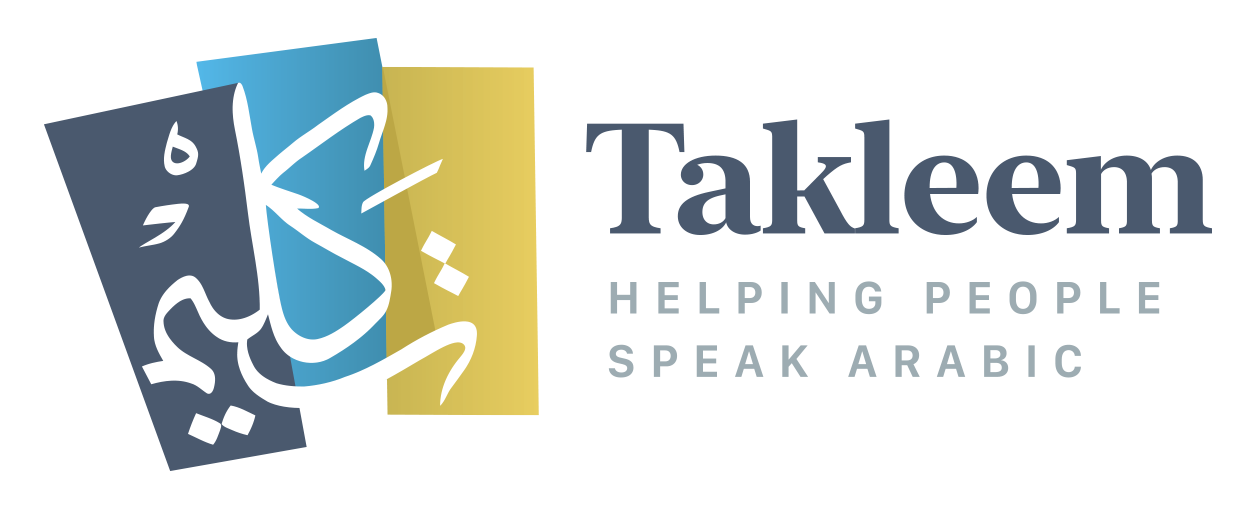Common Saudi Phrases That You Wished You Had Known Sooner. Part 1
Marhaba, Takleem friends! As with any language learner, it is very important to know that the language is not just a communication tool but it is also about a country’s culture. In this article, we will share with you some phrases that are commonly used in Saudi society that you will enjoy incorporating into your speech as they reflect an important part of Saudi culture.
Absher (m) أبشر/ Abshery (f) أبشري
This word is used when someone asks you to do something for him/her and you respond by saying “Absher- if he is a male” and “Abshery- if she is a female”. It means “ok, I will do it, no problem”. It is a polite way to express being fully prepared to do something, which is an explicit expression of generosity and assistance to the other as if you say: “Sure I will do what pleases you and makes you satisfied, don’t worry about it.”. This word is part of Arab civilization, where the noun of it is “besharah” meaning good news and Prophet Muhammad Pace be upon him was always loving good news and used to say “Absher” a lot, and once upon a time when a man said to him: “O Messenger of Allah, achieve for me what you promised me” then the Prophet said to him: Absher!
Here are some of the contexts that explain how this word is used:
- You say to the waiter: I want juice please… and he says to you: Absher!
- You say to your son, Bring the book please … and he responds: Absher!
- You ask your friend: Could you help me search for a job, and he says to you: Absher!
- You say to someone on the road: Can you take me to the market? and he says to you: Absher!
The word Absher is commonly used in Saudi Arabia and reflects politeness and magnanimity in carrying out matters and helping people and making them satisfied. So the most famous electronic system for the dealings of citizens and residents was appropriately named (Absher!).
Hayyak Allah (m,f) حيّاك الله – Allah yehayyeek (m,f) الله يحيّيك
“Hayyak Allah” is a welcome phrase, such as “hello” and “Asslamo Alaycom”. Literally, it means, “I pray that Allah may greet you.” It is a sophisticated phrase with a deep and beautiful meaning! And the response to it comes in the same meaning, but in different way: “Allah yehayyeek”.
Tafathal (m) تفضّل/ Tafathaly (f) تفضّلي
The word “Tafathal – said to the male” and “Tafathaly – said to the female”. It is commonly used in two contexts:
1- If you want to give something to someone, for example: a gift, a cup of coffee, or even the money to the seller, you could say “Tafathal (m)/ Tafathaly (f).”
2- If you want to say to someone “take your seat, or get inside” in the sense of welcoming when he/she visits you, you could say “Tafathal (m)/ Tafathaly (f).”
Teslum (m) تسلم / Teslemeen(f) تسلمين
Allah yesallemek (m,f) الله يسلّمك
These words are used to give thanks, such as “thank you= shukrun”. When a person gives you something, you could say “Teslum – if he is a male” or “Teslemeen – if she is a female”. It is in the form of a wish “may you be peaceful” which means wishing the safety for you.
And the response “Allah yesallemek”, and it has the same meaning as the prayer for safety, “that Allah saves you and protects you”.
Sum (m) سم / Summey (f) سمّي
The word “Sum- said to the male”, and “Summey- to the female”. It is always said when someone calls you by your name, so instead of replying yes, it’s good to answer with “Sum” if the one who called you is male, or “Summey” if the one who called you is female.
The meaning is derived from an original Arabic expression which is “name your need= sum hajatuk” which means: “tell me your need, what do you want?”, But it was shortened with the first word only, which is “Sum or Summey”, and this response shows reverence and respect for the one we respond to, that is as if we say: “Ask what you want, I hear you with interest and fulfill your request with respect.”
Tall Omrek(m,f) طال عمرك
This phrase can be said to the male and the female alike, and means payers and requests to Allah to bless the person with a long life. Its metaphorical meaning is to show reverence and respect for the person, such as saying to him/her, “O senior, O Respected, O sir.” It is often used after the previous words as a sophisticated and formal expression, such as “teslum Taal omrek” or “sum Taal omrek”.
Hope you enjoy this reading!
And do not forget to share with us – on Instagram or via email – which of the previous phrases did you like?! Perhaps for its meaning or the beauty of its pronunciation 🙂
Also, do not forget to share it with your friends, and use these phrases with your colleagues as soon as you finish reading.
Stay tuned for the next part.. 😊

